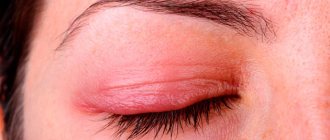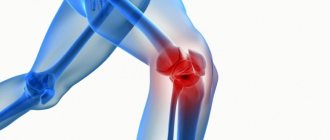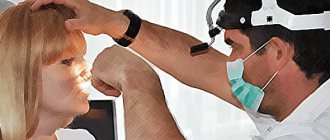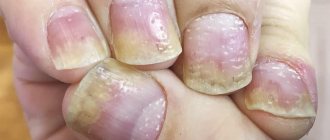Sleep is a human need just like food and water. If you completely abandon it or reduce the duration to a few hours, then after 4-5 days serious health problems will appear. Even replacing night sleep with day sleep can be harmful for those who have to work around the clock. Lack of adequate sleep leads to endocrine disorders, diseases of the cardiovascular and digestive systems, nervous and mental illnesses. Therefore, insomnia, or insomnia, is a disease in which the process of falling asleep or sleep itself is disrupted.
What is insomnia?
The most accurate answer to the question of what insomnia is is given by the International Classification of Sleep and Wake Disorders (ICWD), the latest edition of which was released in 2014. According to it, insomnia (or insomnia) is a pathological condition that is manifested by disturbances in the duration or quality of sleep. Moreover, they are not one-time, but are repeated over a long period of time, despite the fact that the patient has all the conditions (time, place, absence of external stimuli) for proper rest.
These recommendations also describe criteria for insomnia that allow it to be separated from other diseases of the central nervous system, as well as short-term conditions (for example, from sleep disturbance due to influenza, due to an overdose of medications or narcotic substances). These include:
- Insomnia includes any disturbances in the processes of falling asleep, sleep itself, and awakening. Therefore, during a conversation with a specialist, he must focus on this and ask leading questions.
- Insomnia does not include conditions when a person deliberately limits himself to sleep. This often happens among students, employees of private companies or travelers.
- If a patient has poor sleep, then he will certainly complain of decreased performance after waking up.
- Sleep disturbance cannot be explained by other third-party factors.
More difficulties have arisen with the determination of sleep in children (especially infants). But special criteria have been developed for them, which the doctor asks the parents about:
- The child actively or passively resists the efforts of relatives to put him to bed at a set time.
- A child cannot fall asleep in a room without his parents present there.
It is also important how often the symptoms occur. To definitely speak about insomnia, it is necessary that the patient had sleep disturbances at least 3 days a week, and this was necessarily accompanied by signs of decreased concentration, fatigue, irritability or daytime sleepiness.
How to get rid of insomnia
Any changes in life require time and effort. Internal effort and a real desire to change the situation for the better. To get rid of insomnia, you will have to reconsider your lifestyle, first of all, paying special attention to four pillars:
- Sleep hygiene.
This is not only water procedures and ritual teeth cleaning. Sleep hygiene is a broad concept. Stop eating and drinking at least 3 hours before bedtime; in the evening, try to use dim lighting; Avoid reading books, scrolling through social media feeds immediately before bed, and do not fall asleep with the TV on; At night, turn off electrical appliances in the bedroom, if any, turn off the sound and Internet on your smartphone; - Control of emotions.
Nerves are the main cause of all human troubles and joys. Like any instrument, nerves need tuning, prevention, cleaning and strengthening. It is important not only to make daily efforts to maintain your emotional state, but also to regularly support the nervous system with vitamins. Moreover, change your attitude towards yourself by starting to observe sleep hygiene - go to bed early, ventilate the bedroom, learn how to relax before bed, so that internal dialogues do not arise in your head as a consequence of the day. - Diet.
We are what we eat. The statement is absolutely true in matters of combating insomnia. Fatty, spicy, salty foods, fast food and abuse of sugar, sweet and alcoholic drinks can have such a strong impact on the body that insomnia very quickly comes to such belly celebrations. It is better to include pumpkin and pumpkin seeds, sesame seeds, spinach, cottage cheese in your diet - such food contains amino acids and microelements that have a beneficial effect on the nervous system, and therefore on the quality of sleep. - Taking care of your health.
Physical activity, sports and general activity help the body to be in good shape, which means maintaining the level of serotonin and endorphins in sufficient quantities so that the nervous system feels good. This means your sleep will be of high quality, calm and complete. But, doing physical exercise before bed is not the best idea, because at this moment the nervous system comes into a state of excitement. In the evening, breathing practices and yoga are best.
Symptoms of insomnia
Symptoms that occur during insomnia are usually divided depending on when they bother the patient. The first group of symptoms is called presomnia disorders. It includes disorders that occur during the sleep phase:
- the presence of “rituals” (actions) that must be performed;
- worries that sleep will not come;
- fear of a cold bed;
- the emergence of disturbing memories or thoughts;
- increased motor activity (especially of the lower extremities), frequent changes of position in bed;
- interrupting sleep even with quiet sounds;
- delaying the time to fall asleep to 30-120 minutes.
The second group of signs of insomnia is frequent waking up in the middle of the night. Moreover, it can be caused either by small external stimuli (for example, the sound of a car passing near the house, or a conversation at the other end of the apartment), or by internal triggers (the urge to urinate, pain, a feeling of shortness of breath or palpitations). Often each such awakening lasts more than 30 minutes.
The third group of symptoms is called post-somnia, and combines symptoms that arise due to waking up too early (an hour or two before the required time). In patients, it is often accompanied by the need to go to the toilet, after which they can no longer sleep.
And finally, the symptoms of insomnia necessarily include the patient’s daytime complaints:
- feeling of chronic fatigue;
- drowsiness that occurs even before lunch;
- decrease in cognitive abilities, concentration, speed of task completion;
- frequent mistakes that the patient makes at work or school;
- decreased mood, tendency to aggressiveness or irritability;
- lack of motivation and initiative;
- the patient’s anxiety regarding his sleep and its quality;
- headache;
- loss of appetite and disorders of the digestive tract (nausea, feeling of heaviness in the stomach);
- difficulties in social communication;
- presence of muscle tension.
Somatic form of the disease
Various diseases can contribute to sleep disturbances:
- hypertension;
- diabetes;
- itchy dermatoses and other skin diseases;
- pain of various etiologies (headaches, joints, tumors);
- peptic ulcer;
- hormonal imbalances, for example, thyrotoxicosis (increased levels of thyroid hormones of the thyroid gland);
- angina pectoris.
With somatic pathologies, a person cannot fall asleep for a long time because he does not feel well. He wakes up at night due to pain, and during the day he feels exhausted and sleepy.
A restless night's sleep can be associated with impaired circulation of the spinal cord and brain, leukemia and other blood diseases.
Insomnia is caused by urinary incontinence. It can be caused not only by nervous disorders, but also by urinary system infections, diabetes, and allergies. At the same time, the sleep is superficial, sensitive, there is a fear of getting the bed wet, which provokes even greater tension in the person. Frequently waking up to go to the toilet reduces the quality and overall duration of sleep.
Treatment methods for insomnia
If we consider methods of treating insomnia, we can highlight several of the most important areas:
- Correction of risk factors. This includes adequate treatment of concomitant diseases.
- Sleep hygiene. Specialists spend a significant part of their time explaining to the patient what not to do before bed and how the bedroom should be arranged.
- Cognitive technique. The patient needs to be told about how sleep occurs, what phases it consists of, and talk about new research in this area. This will allow him to have a more realistic assessment of his condition, which will relieve anxiety and uncertainty.
- Drug therapy. In clinical practice, the most commonly used drugs are benzodiazepines and central histamine receptor blockers.
- Folk remedies. Used as auxiliary means.
Sleep apnea
Periodic cessation of breathing during sleep is accompanied by a drop in oxygen levels in the blood and awakenings. With 15 or more episodes of apnea per hour, complaints of restless intermittent sleep, attacks of suffocation during sleep, daytime sleepiness, headache in the morning, and irritability appear. Most often, sleep apnea is accompanied by snoring, restlessness during sleep, daytime sleepiness, decreased mental performance, personality changes, morning headaches and sleep disorders. The cause can be numerous neurological diseases, primarily damaging the brain stem. There are two main types of sleep apnea - central and obstructive.
The most common type of sleep apnea, obstructive sleep apnea, is characterized by intermittent obstruction of the upper airway. At the same time, the diaphragm and chest continue to perform breathing movements. Obstructive sleep apnea is most often caused by a collapse of the upper airway. Patients are often unaware that they suffer from sleep apnea, so family members may need to be asked to confirm the diagnosis.
Sleep apnea is more likely to develop in men who are obese, smoke, or drink alcohol. They usually complain of daytime sleepiness, headache and dry mouth in the morning, character changes (primarily irritability) and decreased mental performance. In mild cases, obstructive sleep apnea resolves with weight loss and stopping smoking and drinking alcohol.
In more severe cases, continuous positive pressure breathing through a mask is indicated. At the same time, constant positive pressure maintains the patency of the airways. Since sleep apnea increases the risk of arterial hypertension, stroke, and heart failure, treatment is mandatory in all cases.
Causes of insomnia
Numerous studies conducted in Europe and North America have identified the main causes of insomnia. These include:
- congenital features of brain functioning;
- frequent stressful situations;
- time zone shifts in patients who frequently travel between countries and continents;
- unfavorable conditions for falling asleep;
- presence of chronic pain syndrome;
- long-term use of certain medications (antidepressants, psychostimulants, antipsychotics, hormones);
- drinking coffee or strong tea immediately before bedtime;
- mental disorders;
- organic diseases of the central nervous system (tumors, consequences of strokes, hemorrhages, Parkinson’s disease);
- skin pathologies that are accompanied by itching;
- low socioeconomic status of the patient.
The combination of the effects of these factors leads to a decrease in the functional activity of the inhibitory system in the central nervous system, which is manifested by a decrease in the production of certain neurotransmitters. The second important factor is the activation of the sympathetic nervous system (with an increase in the concentration of catecholamines in the blood). This promotes increased physical activity during the period when the patient should completely relax and fall asleep.
Treatment of chronic insomnia
Insomnia is an important economic problem, as it leads not only to a decrease in the quality of life, but also to significant losses that both patients and their companies receive due to low productivity. Despite this, for a long time, treatment options for insomnia remained fairly limited. Patients were advised to avoid stressful situations, avoid alcohol or coffee after lunch, and use earplugs to minimize the impact of external irritants on the body. Then sleeping pills appeared on the pharmaceutical market, which helped the patient to sleep, but had their own disadvantages (for example, they could lead to the development of addiction).
Now the problem is being considered more comprehensively. For the doctor who conducts the initial diagnosis, it is necessary to determine all possible factors that could provoke the development of insomnia. The possibility of the presence of other diseases of the central nervous system that could produce similar symptoms is taken into account.
Taking into account the diagnostics performed (which includes CT, MRI, EEG of the brain, consultation with other specialists), before starting treatment, the doctor must answer the following questions:
- Does the patient really have true insomnia, or are his complaints psychosomatic in nature?
- In what comfortable conditions does the patient rest at night? And does he set aside enough time for his sleep?
- Was insomnia caused by the patient's lifestyle? And if so, what factors had the most impact?
- Is the patient taking psychoactive drugs?
- Is the patient taking medications whose side effects could cause the development of the pathological condition?
- What concomitant diseases could contribute to the development of insomnia?
The most complete answers to these questions will allow the doctor to begin effective treatment of chronic insomnia.
Diagnosis of insomnia
The doctor can make a diagnosis based on the patient's physical condition and complaints. There are two main criteria that allow you to accurately diagnose the disease: a significant decrease in sleep quality and a prolonged process of falling asleep, which lasts more than half an hour. To accurately assess sleep disturbance, the patient may be asked to keep a sleep diary for a month.
According to indications, consultations with other specialists, laboratory tests, and polysomnography may be prescribed. The latter technique involves studying the patient's sleep using special computer equipment. Typically, polysomnography is prescribed when drug treatment is ineffective, as well as the presence of motor activity and breathing disorders during sleep. With the help of this study, you can assess the functioning of the body during sleep, get a complete picture of sleep and find out the duration of its phases.
Treatment of insomnia in the elderly
In older patients, insomnia occurs more often against the background of chronic diseases. These pathologies are often accompanied by pain, frequent urge to urinate at night, itching and other symptoms that lead to awakening. Therefore, treatment of insomnia in older people necessarily includes the following points:
- Adequate drug pain relief. Nonsteroidal anti-inflammatory drugs (NSAIDs) or opioids are used.
- Selection of pharmacological therapy to compensate for cardiac, renal or liver failure, as well as to reduce blood pressure and normalize blood sugar levels.
- Timely treatment of degenerative diseases of the central nervous system, as well as mental disorders.
- If there is a problem with urination, the urologist must determine the cause.
Complications
Complications of insomnia:
- increased risk of developing chronic diseases;
- disruption of the immune system;
- obesity;
- slowness of reactions;
- decreased labor productivity;
- mental disorders.
When to see a doctor
What to do about insomnia? People ask this question very often. Going to the doctor is the simplest and most correct answer. Consultation can be obtained from a therapist, neurologist or special sleep specialist. They will study the cause of your problem, prescribe tests if necessary, and, based on the data obtained, solve it using effective and safe methods. In our clinic you can get advice from any of these specialists.
Treatment of insomnia in women
In women, insomnia often first appears during menopause. Therefore, patients with menopausal symptoms need additional consultation with a gynecologist. He prescribes testing of hormonal parameters (estrogens, progesterones), and if there are deviations, it is necessary to take corrective therapy.
Also, treatment for insomnia in women often includes behavioral therapy. In individual or group (for example, when the whole family comes) sessions with a psychologist, sleep problems are discussed, and the doctor carefully explains what the main factors in the occurrence of insomnia are and how they affect the functioning of the nervous system. At the same time, each lesson is given a certain homework, which helps to gradually modify the patient’s lifestyle.
Drugs for the treatment of insomnia
Pharmacological therapy for insomnia has become one of its main components. Depending on the medications chosen, it is possible to remove the patient’s fear, unnecessary thoughts, or even significantly suppress brain activity, which leads to rapid and deep sleep.
Often, benzodiazepines are prescribed for this purpose - medications that act on gamma-aminobutyric acid (GABA) receptors in the central nervous system. This provokes a decrease in neural excitability, which leads to muscle relaxation, calms the patient and significantly increases the desire to sleep. To correct insomnia, it is recommended to use triazolam, flurazepam, quazepam, temazepam or estazolam. However, due to the risk of developing addiction, they should not be prescribed for a long period (more than 1-2 weeks).
Z-medicines (zolpidem, zaleplon) are also used - drugs for the treatment of insomnia, which are similar in their mechanism of action to benzodiazepines, but have a different molecular structure. Therefore, they can be used over a longer course (continuously for up to 1 month). The incidence of side effects is lower and tolerability is better than that of benzodiazepines.
Another important group of drugs that are used to treat insomnia are central histamine receptor blockers (doxylamine). These drugs block one of the most important mechanisms of neuronal stimulation, which leads to inhibition of processes in the central nervous system and the development of severe drowsiness. Today, a number of international recommendations recommend their use for insomnia, but their effectiveness in independent studies has not yet been definitively proven.
The use of melatonin analogs, a hormone responsible for regulating the circadian rhythm in the human body, is considered promising. This allows you to increase sleepiness in the evening, and also reduces the frequency of night awakenings and improves sleep quality.
Insomnia Treatments
In pharmacies and online stores you can easily find a variety of treatments for insomnia: tablets, drops, ointments. However, keep in mind that all of them are not effective medicines, but are sold as dietary supplements. This means that the manufacturer is not obliged to conduct studies in which it is necessary to prove the effectiveness of the product, but it is enough only to show the safety of this product for health.
Some manufacturers also offer devices for magnetic therapy or low-frequency electrotherapy. They are portable enough to be used not only in physical therapy offices, but also at home. But the evidence base in them is insufficient, which allows them to be used only as an addition to the main methods of treatment.
Treating insomnia at home
An important element is treating insomnia at home. This includes sleep hygiene - a set of rules and recommendations regarding the organization of patient behavior. The purpose of the technique is to create conditions for the longest and most stable sleep. Among its provisions, the following should be highlighted:
- It is necessary to go to bed and get up at the same time on both weekdays and weekends.
- An hour to an hour and a half before falling asleep, avoid excessive mental or physical stress.
- Dinner doesn't have to be filling. It is better to eat no later than 2-3 hours before bedtime.
- In the afternoon, do not drink coffee, strong green tea, cola or energy drinks.
- Make your sleeping area as comfortable as possible. It is often necessary to change the mattress or buy an orthopedic pillow.
- When the patient has already climbed into bed, he needs to limit reading from a smartphone, phone, laptop or watching TV.
Presomnia disorders
The main complaint of patients is problems falling asleep. Normally, the stage of falling asleep lasts about 3-10 minutes. However, a person suffering from insomnia may take half an hour to two hours to fall asleep. An increase in the duration of falling asleep can be provoked by anxieties and fears, taking medications, getting up late, or a pain reaction.
After the patient goes to bed, he immediately loses the desire to sleep. Heavy thoughts begin to weigh him down, he cannot choose a comfortable position for a long time, and he feels an unreasonable itch. Such problems caused by sleep disorders may be accompanied by strange rituals that are characteristic only of sick people. For example, a patient may have a fear of falling asleep, even fear of going to bed.
Treatment of insomnia with folk remedies
In folk medicine there are a number of remedies that have a sedative effect and also remove stress and excessive emotions. Using them a few hours before falling asleep can improve the quality of your sleep. The most frequently used of them are:
- Valerian infusion. It is necessary to pour 2 tablespoons of peeled and crushed plant root into about 400-500 ml of hot water, and leave for 30-45 minutes in a cool place. Then you can drink half a glass 1.5 hours before bedtime.
- Melissa tea. This plant has long been known as an effective remedy for the development of neuroses, depression and sleep problems against their background. This tea can be found in pharmacies under various brand names. To brew it, you need to add a bag or a teaspoon of lemon balm to 250-300 ml of boiling water and cover with a lid. After 15 minutes, the tea is ready to drink.
- A bath with herbs (calendula, oregano, lemon balm) helps relax the body and relieves muscle fatigue. The most optimal water temperature is 37-38 degrees. You can take it within 15-30 minutes after dinner. This method is not recommended for patients with organic diseases of the central nervous system.
- Aromatherapy. Soft odors have a relaxing and calming effect on the patient's body. Therefore, before going to bed, it is recommended to rub aromatic oils on your temples or forehead. It is recommended to use chamomile, rosewood, valerian or anise.
However, treatment of insomnia with folk remedies is not always effective. Especially if insomnia only accompanies other diseases. In such cases, there is no need to postpone a visit to a qualified specialist.
What helps fight insomnia?
In the treatment of dyssomnia, herbs, special exercises, establishing a regimen, medications, and physical procedures are used, including:
- massage;
- medicinal baths;
- balneotherapy;
- electrosleep;
- magnetic therapy;
- darsonvalization of the head and collar area;
- galvanotherapy;
- electrophoresis with sedatives;
- acupuncture.
Medicines are prescribed depending on the cause and other factors.
Helpful information
In most cases, a person can normalize sleep himself without resorting to the help of doctors or medications.
If the condition is caused by mental disorders, it is difficult to cope with the problem on your own; most likely, you will need to involve a psychotherapist or psychiatrist.
Medications
Taking medications for dyssomnia is prescribed in extreme cases; these can be drugs of different groups; treatment can be carried out by:
- antidepressants (Doxepin);
- antihistamines (Diphenhydramine, Pipolfen, Donormil);
- barbiturates (Phenobarbital, Hexobarbital);
- imidazopyridines (Zolpiden);
- tranquilizers of the benzodiazepine group (Phenazepam, Triazolam);
- cyclopyrrolones (Somnol).
Drugs of these groups are addictive and have many side effects, so they can be prescribed strictly by a doctor. There are more gentle, over-the-counter remedies, but it is recommended to use them the same way, after consultation. The following method is considered effective:
- Novopassita;
- Glycine;
- Corvalola;
- Valocordina;
- Tanakana;
- Ginkgo Beloba;
- Donormila;
- Persena;
- Afobazole;
- Melaxena;
- Tinctures of motherwort, lemon balm, valerian, etc.
It is forbidden to take medications for more than 3 weeks or mix them with alcohol. They should not be used by children, during pregnancy and lactation, in case of breathing problems at night, the presence of certain other diseases, and people who require increased concentration in the morning. Mixing with other drugs is possible only after consultation with your doctor.
Relaxation techniques
A stressful state provokes the release of adrenaline into the blood, and breathing quickens and becomes shallow. By performing the proposed technique, based on proper breathing, you can normalize your heart rate, calm down and relax. Actions are performed in stages:
- The tip of the tongue is placed on the palate near the upper teeth.
- You will need to breathe with your stomach to control this, placing your hands on your chest.
- Now you need to take a deep breath through your nose, slowly counting to 4.
- Next, the breath is held and restored by counting to 7.
- Then inhale through the mouth, counting to 8, leaving the tongue in the same position.
It is recommended to perform this exercise in bed 5-10 times, increasing the number of repetitions daily if necessary.
Falling asleep techniques
You can use different techniques for falling asleep; before performing them, you need to ventilate the room, wear breathable clothing, and remove all sources of light and sound.
- The first exercise is to concentrate on breathing, the breaths should be slow and deep, the person needs to count their number and not think about anything else. Instead of breathing, you can count visualized numbers, animals, or something else.
- The next technique is to listen to soft music or nature sounds. Some people can fall asleep well to the singing of birds, the sound of rain and the sea.
- Yoga and meditation are very helpful in the fight against insomnia. Simply stretching your arms and legs 15 minutes before bed will help your body relax. You need to spread your arms to the sides, reach your legs and stretch them up.
- Gymnastics helps to relax the body; while lying in bed, you can begin to clench and unclench your toes, calves, thighs, stomach, chest muscles, face, fists.
- You can use visualization techniques, imagine something interesting: an ideal house, the sea, a movie, etc.
- Many note the effectiveness of the method in which a person forces himself not to sleep at night.
Folk remedies
To treat insomnia, people use many drugs that can be taken in combination with different components. They are consumed orally, added to baths, massaged, or used for aromatherapy and compresses.
Honey
The beekeeping product is included in many recipes. It can be consumed with mineral water and finely chopped lemon. Amount of ingredients: 1 large spoon of each. The mixture is consumed every morning.
Herbal infusions
A collection of peppermint, motherwort, hop cones and valerian root helps calm the nervous system and relax. For decoction use 10 g. a mixture of equal amounts of ingredients, pour a glass of boiling water and heat in a water bath for 10 minutes. Next, the liquid is filtered, brought to the original volume with boiled water and consumed three times a day, with the last dose before bed.
Peppermint leaves, chamomile, fennel seeds, valerian roots, and cumin are added to the next decoction. Herbs, in the amount of 20 g. pour 500 ml of water and heat in a water bath for 30 minutes. Add water to the decoction to replenish the volume, filter and drink 1 glass 2 times a day.
To prepare this medicine, take 5 grams. thyme, motherwort and calendula. The mixture is poured into 250 ml of hot liquid and placed on low heat for 15 minutes. The resulting liquid is infused for 1 hour, filtered, honey is added and consumed half a glass before going to bed.
Dill
Dill tincture is considered effective in the fight against dyssomnia. To prepare it, use 2 large spoons of fresh, chopped herbs and 2 cups of boiling water. The liquid is infused all night, and the next day is drunk in 4-5 doses. Duration of treatment is 4 days, then rest for 2 days and, if necessary, repeat the course.
Kalina
To prepare the medicine, take 50 grams. crushed viburnum root and 1 liter of water. The liquid is kept for 1 hour, then put on low heat for 30 minutes. The broth is filtered and consumed half a glass each time after meals.
Pumpkin decoction
For the drink you need to grate 250 grams. peeled pumpkin, pour in a liter of liquid and bring to a boil. Then the drink should sit for at least half an hour, after which it should be taken with half a glass 1 hour before going to bed. After 7 days you can drink a whole glass. The course of administration is limited to the growing season of fresh vegetables. Honey can be added to the liquid and given to children from 3 years of age, but not more than 50 g.
Baths
Warm water itself promotes relaxation, the effect will be enhanced if you add a decoction of valerian roots or a mixture of fragrant hay, fir cones, and pine needles to the bath. Cones and needles should be boiled and infused for at least 15 hours. Baths should be taken at least 2 hours after meals, the water temperature should not exceed 40 degrees, the duration of use is 15 minutes. Water should not reach the heart muscle area.
Clay
It is believed that a weekly procedure of compresses with clay is enough to normalize sleep. For one session you need to prepare 10 ml of yarrow tincture, 2/3 cup of white clay and the same amount of water. The components are mixed in an enamel container and applied to the temples and forehead with a napkin. This compress is kept for no more than 20 minutes.
Reviews about the treatment of insomnia
On social networks and health websites, you can find various reviews about the treatment of insomnia. As can be seen from them, the causes and methods of treating the disease are different.
Irina, 59 years old: I started having sleep disorders about 3 years ago. At first I didn’t give it any importance, but then I noticed that I had lost weight, my skin became drier and hotter, and my heartbeat began to bother me frequently. I turned to a neurologist, but after an examination he sent me to an endocrinologist. I was diagnosed with thyroiditis, and insomnia appeared due to hormonal imbalance. After the operation, all problems quickly disappeared and do not bother me anymore
Sergey, 48 years old: The last few months I have had difficulties at work. And this had a detrimental effect on my sleep. I could wake up 2-3 times during the night, all sorts of thoughts would bother me, and then I would walk around tired all day, which is why I often made stupid mistakes. My doctor referred me to a sleep specialist. After the examination, he gave me some important advice regarding getting ready for bed, and also prescribed sedatives. He also suggested that if the initial treatment did not help, I should sign up for special psychotherapy classes. As a result, after a few weeks my sleep problems completely disappeared











